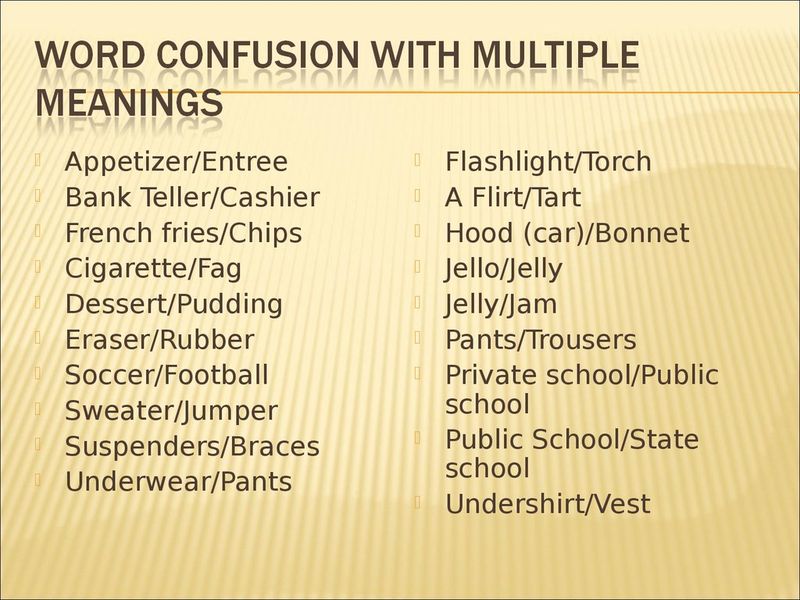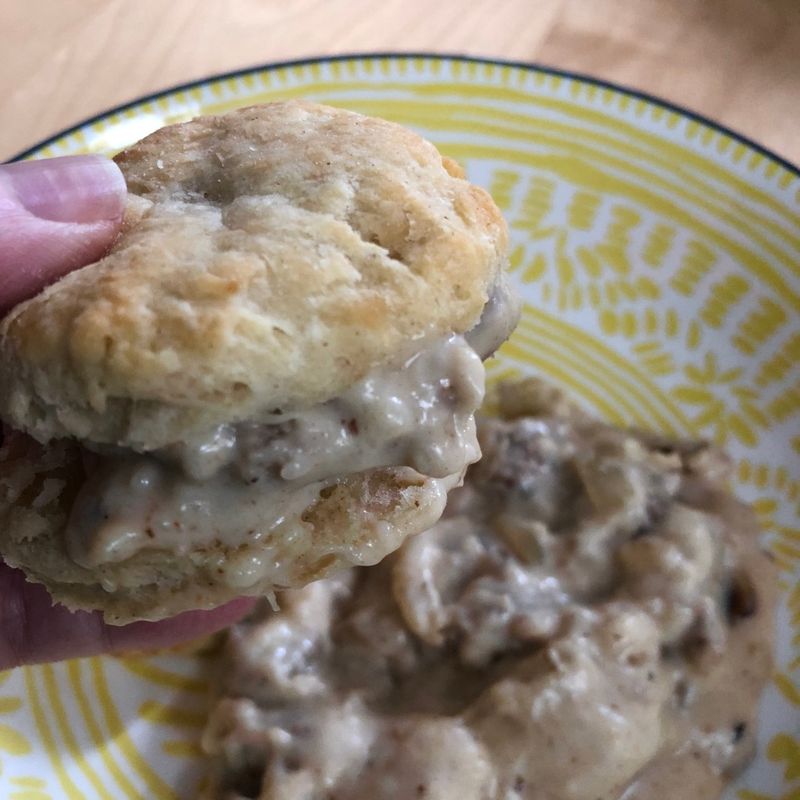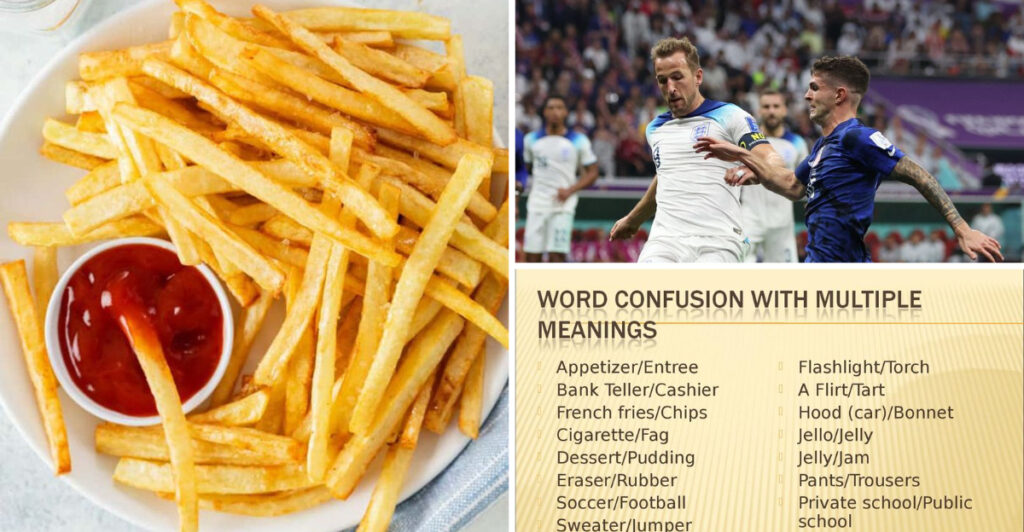Navigating conversations in the U.S. can be tricky, especially if you’re unfamiliar with the cultural nuances. Here are five things I said that immediately made me wish I could hit the rewind button.
Ordering a “Long Black” Coffee

In my first week in New York, I strolled into a bustling coffee shop and confidently ordered a “Long Black.” The barista paused, looking utterly perplexed. I quickly realized that unlike in Australia, where the term is standard, it’s not commonly used in the U.S. Instead, my request was met with a puzzled frown, followed by a series of questions to clarify what I actually wanted.
The term “Long Black” refers to a style of coffee made by pouring a double-shot of espresso over hot water. Americans, however, are more familiar with terms like “Americano” for similar coffee styles. This small linguistic difference was a lesson in how local coffee culture can vary wildly across the globe.
From that day on, I learned to adapt my coffee orders depending on where I was, ensuring my caffeine fix didn’t come with a side of confusion.
Mentioning “Football” and Meaning Soccer

At a lively sports bar, I made the mistake of calling a soccer match “football.” The immediate reaction was a mix of bewilderment and laughter. In many parts of the world, “football” refers to what Americans call soccer.
However, in the U.S., “football” is an entirely different sport involving helmets, touchdowns, and the NFL. So, my comment about loving football was met with enthusiastic agreement, only to be followed by bemusement when I started talking about penalty kicks and corner flags.
This moment taught me the importance of cultural context, especially in sports. Now, I always specify “soccer” when I’m stateside, saving myself from any more mix-ups.
Asking for a “Rubber” in Class

Imagine my surprise when, in the middle of a college lecture, I asked a fellow student if I could borrow a “rubber.” In the U.S., this word is commonly understood to mean a condom, not an eraser as it does in the UK.
The room erupted in laughter, and I was left red-faced, trying to explain I simply needed to correct a pencil error. This linguistic mishap highlighted how the same word can have vastly different meanings depending on where you are.
Now, I always remember to ask for an “eraser” in American classrooms, ensuring my requests are met with understanding rather than giggles.
Discussing “Chips” and Getting Fries

I once confidently asked for “chips” at a diner, expecting a bag of crunchy crisps to accompany my meal. Instead, I was served a plate of French fries. In the U.S., “chips” refer to what many other countries call “crisps,” while “fries” is the term for what I was after.
This culinary confusion is a classic example of how the same word can mean different things across the English-speaking world. Each bite of my surprise French fries was a reminder of this amusing disparity.
These days, I make sure to specify “crisps” when craving something crunchy, avoiding any mix-ups during my dining experiences.
Referring to “Biscuit” as a Sweet Treat

I found myself at an American breakfast table, talking about how much I enjoyed “biscuits” with my tea. To my confusion, the host brought out flaky, savory bread rolls instead of the sweet cookies I had in mind.
In the U.S., “biscuits” are typically buttery and served with gravy at breakfast, a far cry from the crunchy, sweet biscuits familiar to many Europeans. This slip-up was a gentle reminder of the delightful diversity in nomenclature we encounter in different countries.
Now, I always specify “cookies” to ensure I get my desired sweet treat, learning from this tasty misunderstanding.
“I’ll Have a Serviette”
Ordering a serviette instead of a napkin in a U.S. restaurant can lead to blank stares. Most Americans use the term “napkin,” and the word “serviette” is uncommon. Imagine sitting down for a meal, confidently asking for a serviette, only to have the waiter look puzzled.
This small linguistic difference highlights how varied English can be. In the UK or Canada, a serviette is perfectly normal. However, in the U.S., it’s all about the napkin. This request is a simple reminder of the nuances in everyday language. It’s fascinating how a single word can change perceptions.
“I Need a Biro”
In the U.S., asking for a biro might leave you empty-handed. The term “biro” is a British synonym for a ballpoint pen, but it’s rarely heard stateside.
Picture yourself in a meeting, urgently needing to jot down notes and requesting a biro, only to be met with confused looks. In the U.S., it’s simply called a pen. It’s intriguing how regional vocabulary can affect everyday interactions, and how something as simple as a pen could cause a communication hiccup.
Such experiences enrich your understanding of cultural differences.
“Where’s the Queue?”
Referring to a line as a queue can cause momentary bewilderment in the U.S. While “queue” is common in countries like the UK, Americans generally use “line.”
Imagine being at an airport, asking where the queue starts, and getting a few puzzled glances. It’s a little reminder that even familiar actions like lining up have different terminologies.
This linguistic diversity enriches the experience of traveling, opening doors to understanding cultural variations. Who knew waiting in line could be a lesson in language?
“Can I Have a Lift?”
Requesting a lift instead of a ride can confuse Americans, who might think you’re referring to an elevator. In the U.S., asking for a ride is the norm.
Imagine needing transport, turning to a friend and asking, “Can I have a lift?” only to see them pause, wondering if you’re joking about needing an elevator. These moments are amusing yet educational, teaching the significance of words in different contexts.
They reveal the delightful complexity of language and cultural adaptation.
“I Fancy a Drink”
Saying you “fancy a drink” might be met with bemusement in the U.S., where “fancy” isn’t commonly used in this context. Americans typically say “feel like” or “want.”
Picture yourself at a bar, expressing your desire with “I fancy a drink,” and watching as the bartender hesitates, processing the unfamiliar phrasing. It’s a humorous encounter that underscores how idiomatic expressions vary widely.
These small moments of cultural exchange add layers to our interactions and broaden our linguistic horizons.
“On the Dole”
The phrase “on the dole,” referring to receiving unemployment benefits, may not be recognized in the U.S. Here, people usually say “on unemployment.”
Imagine discussing financial struggles and casually mentioning you’re “on the dole,” only to be met with blank stares. It’s a potent reminder of how expressions evolve differently across regions.
Such language differences enrich our global perspective, highlighting the unique ways societies discuss similar experiences, like unemployment.
“Takeaway or Takeout?”
Referring to food as “takeaway” instead of “takeout” can cause minor confusion in the U.S., where “takeout” is the preferred term.
Picture yourself ordering at a bustling food court, specifying “takeaway,” and watching the server’s brief moment of confusion. This instance illustrates the small yet significant variations in everyday language.
Such experiences are delightful reminders of the diversity within English-speaking cultures, emphasizing the subtle nuances that make each region unique.
“Aubergine or Eggplant?”
Calling an eggplant an aubergine might draw puzzled looks in the U.S., where eggplant is the standard term.
Imagine wandering through a grocery store, inquiring about aubergines, and encountering blank expressions. This simple word choice highlights the diverse vocabulary used across English-speaking countries.
These linguistic variations offer a quirky glimpse into cultural identity, emphasizing the beauty and diversity of language.
“In a Tizzy”
Describing an anxious or agitated state as “in a tizzy” might not resonate in the U.S., where phrases like “stressed out” are more common.
Imagine a busy workday, confessing to being “in a tizzy,” and noticing the quizzical looks from colleagues. This phrase exemplifies how idioms can vary greatly.
It’s a charming reminder of the rich tapestry of language, where each expression carries its own cultural weight.
“Holiday or Vacation?”
Referring to a vacation as a “holiday” can momentarily confuse Americans, who typically reserve “holiday” for specific days like Christmas.
Imagine booking travel plans, enthusiastically discussing your next “holiday,” only to see your travel agent make a small correction to “vacation.” These moments are delightful examples of linguistic diversity.
They enrich conversations, reminding us of the shared yet distinct aspects of global languages.
“Toilet or Restroom?”
Asking for the toilet instead of the restroom can lead to brief confusion in the U.S., where “restroom” is the more polite term.
Imagine wandering through a mall, urgently asking for the toilet, and witnessing a slight hesitation before receiving directions. This subtle distinction underscores the polite nuances in language.
It’s a small yet insightful glimpse into cultural etiquette, where words shape our interactions.
“Nappy or Diaper?”
The term “nappy” instead of “diaper” might confuse Americans, who use “diaper” exclusively for baby products.
Imagine a new parent in a store, requesting nappies, and observing the clerk’s brief confusion before guiding them to the diaper aisle. This encounter highlights the charming diversity in everyday terms.
Such differences enrich the fabric of language, offering insights into cultural preferences and expressions.



